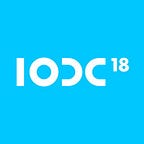Progress, perils, and potential lie ahead for open data’s next chapter
By: Alex Howard.
The continued existence of the International Open data Conference tells one story about institutional commitment to convening this gathering. The nature, number and diversity of its participants told another. The stories we all tell one another are at the heart of why people remain invested in building the changes they wish to see in the world by improving how governments create, use, share and protect data.
Governments have been sharing information directly with the public they represent or direct, depending upon the system of governance, for millennia. From the calends and dicta of the Romans to gazettes and radio and TV stations to the websites and apps, in every era governments have used the media available for their messages.
Publishing government information on the Internet in an open format is a much more recent phenomenon, catalyzed by the advocacy of online pioneers in the 2000s who had helped build out the World Wide Web in the 1990s.
While an immense amount of information still has not been digitized, structured or shared online, the progress in opening data to the public online since the first International Open Government Data Conference in 2010 is extraordinary.
For nearly a decade, cities, states, nations, companies, universities, publishers, nonprofits, scientists, activists have not only been putting more and more open data online but seeking better ways to apply it, improving how government itself works and serves the public.
The state of the world in the fall of 2018, however, has shown how far short of utopian visions of open government data eradicating corruption or maladministration, challenging concentrations of power, or rebuilding public trust in governments.
Political transitions in Western democracies and ongoing erosions in liberal democracy amidst the rise of right-wing populism have put fragile gains in jeopardy.
And while we’ve all seen the world become more connected through social media, smartphones and wireless broadband Internet, humanity’s use of these newfound powers has not been wholly beneficial.
New and old challenges for the public sphere abound, years after excitement about the transformative outcomes ascribed to opening government data has dissipated. Creating shared public facts from government data in a way that drives positive social change has proven to be an elusive goal.
In many states and nations, agencies continue to use paper-based processes or legacy IT systems that were never designed to be connected to the Internet or export data about the administration or performance of the services delivered upon them. Censorship, threats to press freedoms, public literacy, limited Internet access, and weak institutions diminish the impact of disclosures.
Where, when, and how government data is disclosed at all remains a matter of hot debate and litigation around the world, closet tied to the public’s right to know, access and use information under the law.
Openwashing has persisted and becomes more nuanced, with states claiming to be open because of their portals and policies with curtailing press freedoms, engaging in censorship, or even humans rights abuses. Much more of the world has seen how it is possible to publish open data without embracing transparency, accountability, and ethics in the right administration of government or the politics around it.
“We have seen a wave of open data, but not of read-write data”, wrote World Wide Web founder Tim Berners-Lee this September, introducing his new proposed framework for what lies ahead online. “For example, much open government data is produced through a one-way pipeline, so we can only view it”.
And yet.
In many ways, despite the immensity of the collective challenges nations and their people face around the world, the open data advocates have won. Almost a decade on, Berners-Lee’s call to open up resonated.
Open data has become almost mundane, in some countries, with coverage of shifts relegated to government technology trade publications. Around the globe, dozens of nations, states, and cities now publish some form of open data every day, with more government entities joining each year. Governments are adopting open data policies, executive orders, enacting laws, and specifying that disclosures under freedom of information laws should be open online.
Open data is regarded as a building block in of governmental agendas to modernize, adapt and adopt the principles and practices of digital government, including empowering the public to arm itself with public knowledge wherever they are using a connected device and participating in democratic processes and debates.
The default expectation for publishing information for the public is to put it online — which then carries with it new expectations of quality, sustainability and access. When Argentine ministers spoke to the 2018 International Open Data Conference, they embraced opening government data as a core aspect of their reform proposals and policies.
In 2018, we have all reached the end of the beginning for open data, but not the beginning of the end. What comes next will be in the hands of the next generations of politicians, public servants, press and members of the public who build upon the foundations before and write the next chapters in history.
